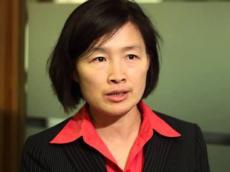Today.Az » Analytics » The Coming Heat Age
28 November 2013 [15:27] - Today.Az
 By Wu Changhua
By Wu Changhua
Greater China Director of The Climate Group.
In the last 100,000 years or so, our planet has endured an Ice Age and a few mini-ice ages. But now, with the earth on track to be four degrees Celsius warmer by 2100, a "Heat Age" is looming over us all.
This is not fear-mongering. According to the Intergovernmental Panel on Climate Change (IPCC), by 2100 we can expect a mean increase in surface temperature of 3.7ºC, with a likely range of 2.6-4.8 degrees. A warmer world will lead to mass migration from stricken areas and exacerbate existing wealth gaps between countries. In the words of David Victor, of the University of California, San Diego, the coming Heat Age will be "nasty, brutish, and hot."
Greenhouse-gas emissions are expected to reach a record high of 36 billion tons this year. That figure is expected to grow dramatically, as the great emerging-market boom of recent decades, which has lifted billions out of poverty and raised living standards around the world, puts increasing strain on the world's environment and resources. Indeed, by 2030, three billion new middle-class consumers - most of them in Asia - will add to the ever-growing burden of emissions.
We can already get a sense of the far-reaching consequences of climate change. In 2010, a major drought in eastern China damaged the wheat crop, forcing the country to rely on imports. This, combined with major wildfires in Russia's wheat-producing areas, helped to double average food prices in global markets.
In the Arab world, many people must spend around half of their income on food, compared with just 5-10% in Europe or the United States. Not surprisingly, the spike in food prices was a contributing factor in the civil unrest that sparked the Arab Spring.
As the link between global food prices and political instability demonstrates, we live in a globally interconnected world, in which we are failing to produce in the right way or create the right economic incentives to address profound environmental threats. As World Bank President Jim Yong Kim has put it, climate change is a big problem with small solutions.
So what can be done to find big solutions? At the World Economic Forum's recent Summit on the Global Agenda in Abu Dhabi, I made three suggestions to tackle climate change.
First, we need to create a new "coalition of the willing" - including businesses, NGOs, national policymakers, and local governments - that will unite around basic rules and principles to cap emissions by 2020 and limit global warming by 2100 to 2ºC (the tipping point beyond which dangerous climate change would become unstoppable). This coalition should draft a framework that countries can adopt and present it at the United Nations climate summit in the fall of 2014.
Second, we need to ensure that there are appropriate economic incentives for those countries that sign up - and that there are disincentives for those that do not. Measures could include a global financing mechanism for green energy, available only to member countries.
Finally, instead of relying on the UN as a negotiating forum, countries should cluster around specific initiatives, from renewable power to sustainable agriculture. These clusters will, I believe, be more agile and more able to act than one overarching structure.
Other ideas that were put forward include offering tax breaks to companies that commit to cutting emissions; tapping behavioral sciences and open data to improve public communication regarding climate change; and creating a more positive narrative that highlights the benefits for all countries of multilateral efforts to limit greenhouse-gas emissions.
With the successor to the UN's Millennium Development Goals due to be adopted in 2015, there has also been serious discussion about how to make efforts to combat climate change an integral part of global efforts to eradicate poverty and give people a more dignified life. The new Sustainable Development Goals should be explicitly linked to environmental issues; after all, hunger cannot be eliminated without taking into account the complex interaction between agriculture, water, and extreme weather.
Given that China currently is the world's largest emitter of greenhouse gases, it clearly has an outsize role to play. A fundamental shift from heavy reliance on coal to clean energy must be accomplished. China must stop subsidizing fossil fuels, embrace the electric car, and tackle the thick clouds of urban pollution that are a blight to local residents and a stain on its international reputation.
China has already made some great strides in the areas of the environment and clean energy. And China's 12th Five-Year Plan provides a clear national policy direction on energy saving, emissions reduction, and industrial development. The task for China's government now is to translate these plans into a demonstration of real leadership, thereby helping to steer the earth's trajectory away from disastrous levels of warming.
The urgency of the problem cannot be doubted. Indeed, IPCC scientists are 95% certain that human activity is the cause of climate change. If you were told that there was a 95% chance that your house would be robbed, you would not wait; you would take preventive action immediately. That is what the world must do.
Copyright: Project Syndicate
/AzerNews/
|
|